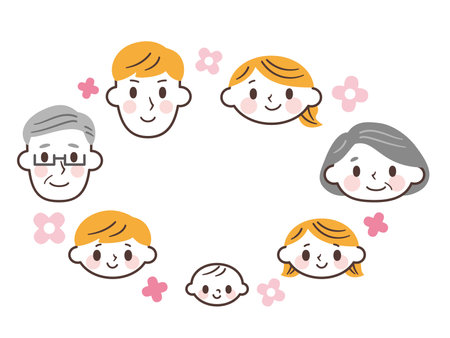Understanding Depression and its Impact
What is Depression?
Depression is more than just feeling sad or having a rough day. It is a common mental health condition that affects how people think, feel, and handle daily activities. In the United States, millions of adults experience depression each year. While everyone feels down sometimes, depression lasts longer and can interfere with work, school, relationships, and daily routines.
How Does Depression Affect Daily Life?
Depression can touch every part of a person’s life. From getting out of bed in the morning to maintaining friendships, depression makes even simple tasks feel overwhelming. Some common effects include:
| Area of Life | Possible Effects of Depression |
|---|---|
| Work or School | Trouble concentrating, frequent absences, lower performance |
| Home Life | Lack of motivation to do chores or take care of oneself |
| Relationships | Withdrawing from family and friends, communication difficulties |
| Mental Health | Feelings of hopelessness, low self-esteem, mood swings |
| Physical Health | Tiredness, changes in sleep or appetite, unexplained aches |
Why Support Systems Matter in Recovery
No one should face depression alone. Having a support system—whether it’s family members, friends, coworkers, or community groups—can make a huge difference in recovery. Support systems offer emotional comfort and practical help. They remind people that they are not alone and encourage them to seek professional treatment if needed.
The Role of Family and Community Support
A strong support network provides:
- Understanding: Loved ones who listen without judgment help reduce feelings of isolation.
- Encouragement: Supportive people motivate individuals to stick with their treatment plans and keep moving forward.
- Practical Help: Family and friends can assist with daily tasks when depression makes them difficult.
- Connection: Being involved in community activities gives people a sense of belonging and purpose.
Key Takeaway: You Are Not Alone
If you or someone you know is struggling with depression, remember that reaching out for support is an important first step in healing. Family and community involvement play vital roles in helping individuals find hope and regain control over their lives.
2. The Role of Family in Providing Emotional and Practical Support
Family plays a vital role in supporting a loved one through depression recovery. In the U.S., where mental health awareness is growing, families are encouraged to be proactive partners in the recovery journey. Close family members can make a significant difference by recognizing symptoms early, offering empathy, and helping their loved ones stay on track with treatment plans.
Recognizing Symptoms Early
Often, family members notice subtle changes before anyone else. These may include mood swings, withdrawal from activities, sleep problems, or changes in appetite. By being observant and having open conversations, families can encourage their loved ones to seek professional help sooner rather than later.
Common Signs Family Members Can Watch For
| Behavioral Changes | Physical Symptoms | Emotional Signs |
|---|---|---|
| Social withdrawal | Lack of energy | Irritability or sadness |
| Losing interest in hobbies | Changes in sleep patterns | Hopelessness |
| Difficulty concentrating | Appetite changes | Crying spells |
Offering Empathy and Understanding
Empathy is more than just listening—it’s about showing you care without judgment. American families often find it helpful to use supportive phrases like “I’m here for you,” or “You’re not alone.” Avoiding statements that minimize the experience, such as “Just cheer up,” is also important. Simple acts like spending quality time together or checking in regularly can help someone feel less isolated.
Assisting With Treatment Adherence
Treatment for depression may include therapy sessions, medication, lifestyle changes, or a combination. Family members can support recovery by helping schedule appointments, providing reminders for medications, or offering rides to therapy. They can also encourage healthy habits such as regular meals and physical activity.
Ways Families Can Support Treatment Adherence
| Support Action | How It Helps |
|---|---|
| Setting reminders for medication and appointments | Keeps treatment on track and reduces missed doses or visits |
| Participating in therapy sessions (if invited) | Shows support and helps understand treatment goals |
| Encouraging daily routines and self-care practices | Promotes stability and positive habits |
| Open communication about progress and challenges | Makes it easier to address obstacles together |
The involvement of family can be a cornerstone in the path to recovery from depression. Recognizing symptoms early, showing empathy, and helping with practical aspects of treatment all contribute to a supportive environment that encourages healing.

3. Engaging Friends and Building Trusted Relationships
Recovering from depression is not something anyone should have to do alone. While family support is important, friends and peer networks can also make a big difference in the healing journey. In American culture, friendships often provide both emotional comfort and a sense of belonging. Heres how friends and trusted relationships play a vital role in depression recovery:
How Friends Can Help During Depression Recovery
| Ways Friends Can Support | Examples |
|---|---|
| Offering Encouragement | Sending supportive texts, celebrating small victories, or reminding you that youre not alone |
| Reducing Isolation | Inviting you to social gatherings, checking in regularly, or just spending quiet time together |
| Fostering Connection | Engaging in shared hobbies, joining group activities like book clubs or sports teams, or volunteering together |
| Listening Without Judgment | Being available to talk, validating your feelings, and offering empathy instead of advice |
| Encouraging Professional Help | Helping you find resources, offering to go with you to appointments, or supporting your therapy goals |
The Power of Peer Networks
Peer networks—groups of people who share similar experiences—are another valuable resource. Support groups, whether in-person or online, offer a safe space to share struggles and successes without fear of being judged. In many American communities, local organizations and mental health centers organize group meetings for those dealing with depression.
Benefits of Peer Networks:
- Shared understanding: Connecting with others who “get it” can reduce feelings of loneliness.
- Mutual support: Members encourage each other and celebrate progress together.
- Practical advice: Learn coping strategies that have worked for others in similar situations.
- A sense of purpose: Helping others can boost your own self-esteem and motivation.
Tips for Building Trusted Relationships
- Start small: Reach out to one friend or join a small group activity.
- Be honest about your needs: Let friends know how they can best support you.
- Nurture positive connections: Spend time with people who make you feel safe and accepted.
- Explore new circles: Consider community classes, volunteer opportunities, or online forums related to your interests.
Cultivating strong friendships and joining supportive peer networks can make a meaningful impact on recovery from depression. Taking small steps toward connection helps build confidence and creates a safety net for times when things feel overwhelming.
4. Leveraging Community Resources in the U.S.
When working through depression, connecting with community resources can make a big difference. In the United States, there are many options for support beyond just family and friends. These resources are designed to help people feel less alone and provide practical assistance during recovery.
Support Groups
Support groups bring together people who are experiencing similar challenges. In these groups, members share their stories, learn from each other, and offer encouragement. Many organizations in the U.S., like the National Alliance on Mental Illness (NAMI) or Depression and Bipolar Support Alliance (DBSA), offer free local or online meetings. Some groups focus on specific needs, such as young adults, parents, or veterans.
Examples of Support Groups
| Organization | Type of Group | How to Join |
|---|---|---|
| NAMI | General mental health support | Local chapters or online registration |
| DBSA | Depression and bipolar disorder support | Online or in-person meetings |
| Meetup.com | Diverse peer-led groups | Search by location and interest online |
Faith-Based Organizations
Many Americans find comfort and strength through faith-based communities. Churches, synagogues, mosques, and other places of worship often have programs that offer counseling, prayer groups, and social activities. These organizations may also connect individuals with volunteers who can check in regularly or help with daily tasks. Participation is open to everyone—whether you are a member or just seeking support.
Local Mental Health Services
Cities and towns across the U.S. provide mental health services through clinics, hospitals, and nonprofit agencies. These services might include counseling, medication management, crisis hotlines, or educational workshops. You can usually find information about available services through your city’s website, public libraries, or by calling 211—a free helpline that connects people to local resources.
Ways to Find Local Mental Health Services:
- Contact your primary care doctor for referrals.
- Visit community health centers.
- Search online directories like Psychology Today.
- Call 211 for confidential assistance.
- Ask at schools or workplaces for employee assistance programs (EAPs).
No matter where you are in your journey with depression recovery, reaching out to these community resources can help you build a stronger support system and remind you that you’re not alone.
5. Encouraging Open Communication and Reducing Stigma
Why Open Communication Matters in Depression Recovery
Talking openly about mental health is a powerful way to support someone dealing with depression. When families and communities encourage honest conversations, it helps break down barriers and makes it easier for people to ask for help. In the United States, there is still some stigma around mental health, but open dialogue is an important step toward healing.
Common Barriers to Open Communication
| Barrier | How It Shows Up | What Helps |
|---|---|---|
| Fear of Judgment | Worry about being seen as “weak” or “different” | Reassure that everyone struggles sometimes |
| Lack of Understanding | Not knowing what depression really is or how it affects people | Share facts and personal experiences |
| Cultural Beliefs | Believing mental health issues should stay “in the family” | Normalize seeking outside help when needed |
| Privacy Concerns | Nervousness about sharing personal feelings in group settings | Create safe, private spaces for conversation |
How Families Can Encourage Open Dialogue
- Start small: Even short check-ins can make a big difference. Ask questions like, “How are you feeling today?” or “Is there anything on your mind?”
- Listen without judgment: Let your loved one talk without interrupting or offering quick solutions. Sometimes just listening is enough.
- Avoid minimizing: Statements like “Just snap out of it” can be hurtful. Instead, say things like, “I’m here for you,” or “That sounds really tough.”
- Share your own feelings: Being open about your own struggles can help normalize talking about mental health.
- Encourage professional help: Remind them that seeing a therapist or counselor is just as normal as visiting a doctor for physical health.
Strategies for Reducing Stigma in the Community
- Mental Health Education: Host workshops at local schools, churches, or community centers to teach people what depression really looks like and how to support each other.
- Support Groups: Encourage participation in local support groups where people can share their stories in a safe environment.
- Public Awareness Campaigns: Use social media, posters, and local events to spread positive messages about mental health and recovery.
- Lead by Example: Community leaders can set the tone by talking openly about mental wellness and supporting those who seek help.
- Acknowledge Progress: Celebrate steps forward—no matter how small—to encourage ongoing open conversation and acceptance.
The Role of Empathy and Understanding
An empathetic approach means listening first, avoiding judgment, and trying to understand what someone else is experiencing. When families and communities respond with compassion instead of criticism, it creates a safer environment for everyone to talk about their mental health challenges. Together, we can reduce stigma and build stronger support systems for depression recovery.


